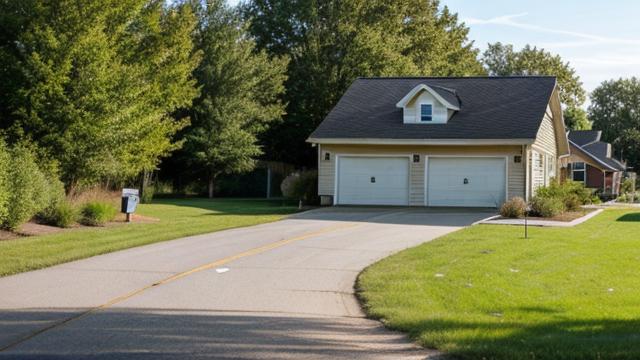Unraveling the Societal Implications of Chronological Displacement Syndrome in Rural Suburbs
Sat, 31 May 2025 09:14:52 GMT

The Rural Suburbs: Where Time Goes to Die
In the quaint, idyllic towns that dot the English countryside, a peculiar phenomenon has been observed. It's as if the very fabric of time itself has become warped and distorted, causing residents to lose track of what day it is, let alone the passing years. This anomaly has led to a host of bizarre consequences, from the mundane to the utterly absurd.
In many rural suburbs, the concept of yesterday is nothing more than a distant memory, a myth perpetuated by the local pub's weekly quiz night team. As the clock strikes 5 pm, the world outside seems to freeze in place, waiting patiently for the next day's festivities to begin. It's as if the inhabitants of these towns have collectively decided to take a collective holiday from the tedium of time itself.
The effects of this temporal displacement are multifaceted and far-reaching. For one, it has led to a rise in popularity among local shopkeepers who now offer yesterday's discounts on everything from fresh produce to last week's newspapers. The shelves in these stores become veritable time machines, filled with the detritus of days past, waiting patiently for their chance to be rediscovered.
But the impact goes beyond mere commerce. In rural communities where family ties run deep and friendships are forged over pints in the local, the concept of yesterday becomes a sort of temporal shorthand. When asked when they'll meet up again, friends will reply with a knowing glance, Next Wednesday, I suppose? The ambiguity is both liberating and suffocating at once.
Of course, there's also the matter of local history. In these towns, records of past events are often shrouded in mystery, as if the very fabric of memory itself has become tenuous. One might hear tales of a great flood that occurred some years ago, only to be met with a collective shrug from locals who've lived through so many iterations of next year's flooding.
Now, you might be thinking that this is just a case of small-town America or the Wild West, where time seems to bend and warp in strange ways. But no, dear reader, this phenomenon has been observed in even the most modern of rural British suburbs. It's as if the very essence of Englishness – that quintessential blend of stoicism and tradition – has taken on a life of its own.
One resident described the experience thusly: It started when I realized my 5-year-old was wearing last week's school uniform. I thought it was just an honest mistake, but then I asked her what day it was, and she said 'Tuesday?' I replied, 'That can't be right.' She looked at me quizzically, as if I was the one who'd lost track of time.
As with most phenomena that defy explanation, theories abound. Some point to the role of climate change in warping local weather patterns, causing an unprecedented level of temporal instability. Others suggest it's a result of the proliferation of fantasy football leagues and their corresponding calendars, which now seem to represent a dimension unto themselves.
But what really sets these rural suburbs ablaze is the sheer audacity of residents when faced with the challenges presented by time displacement syndrome. Like nothing could possibly go wrong, they embark on all manner of harebrained schemes. One enterprising individual, for instance, has developed an app that supposedly helps users navigate the complexities of yesterday. The result? An iPhone app that simply displays a calendar filled with repeating days.
Despite the absurdity of it all, there's something undeniably charming about these communities where time stands still. Perhaps it's the sense of camaraderie among residents who've collectively given up trying to keep pace with the clock. They gather each week for Quiz Night, which seems to serve as a beacon of stability in an otherwise topsy-turvy world.
In many ways, this phenomenon can be seen as a celebration of rural British culture – where time stands still and all that matters is the next pub crawl or the arrival of spring. It's a testament to the power of community and tradition, even when those very things seem to be at war with the relentless march of time.
And so we find ourselves in this curious state of temporal flux, with no clear beginning or end in sight. Is it a blessing or a curse? Who knows? All that matters is that we're all in this together – stuck in the midst of yesterday, with next week's football results serving as our only hope for redemption.
As one enterprising local once quipped: When life gives you lemons, make lemonade. When life gives you a temporal displacement syndrome, open up a bakery and sell yesterday's croissants. Ah, the wondrous things that happen when we give ourselves permission to get lost in the labyrinth of time.